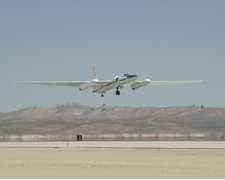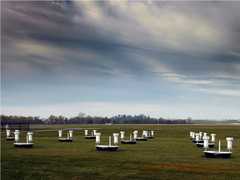Accelerated Canopy Chemistry Program
Carbon Cycle & Ecosystems
- 1
- Deployment
1992-06-02 1993-05-27 - 2
- Platforms
- 6
- Data Products
The Campaign
The Accelerated Canopy Chemistry Program (ACCP) was a NASA field investigation designed to establish both the theoretical foundations and practical methods for remote sensing of nitrogen and lignin levels in vegetation canopies across different ecosystems. It consisted of a single deployment from 1992 to 1993 at sites in Massachusetts, Wisconsin, Maine, Florida, and California. The NASA ER-2 aircraft was equipped with the Airborne Visible/Infrared Imaging Spectrometer - Classic (AVIRIS-C) to collect multispectral imagery for estimating canopy carbon and nitrogen content. Field samples were collected from canopies at each location, followed by laboratory spectral and chemical analyses.
N: 45°N
S: 30°N
W: 122°W
E: 69°W
no campaign DOI available
- ACCP Project Website
Additional Notes
Repositories
Events
Filter data products from this campaign by specific platforms, instruments, or formats.

